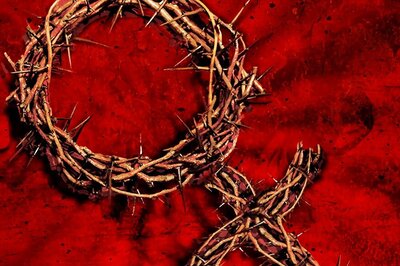
views
Beirut: Thousands of protesters outraged by corruption and proposed tax hikes burned tyres and blocked major highways in Lebanon on Friday, prompting the premier to give his government partners three days to support a reform drive.
Demonstrations that flared Thursday, partly sparked by a proposed new tax on calls made through messaging apps such as WhatsApp, have grown into the largest in recent years, threatening to topple Prime Minister Saad Hariri's fragile coalition government.
After his speech, clashes flared in central Beirut's Riyadh al-Solh Square between demonstrators and security personnel, who then fired volleys of tear gas into the crowd to clear the plaza.
Thousands of people of all ages, sects and political affiliations had brought the capital to a standstill Friday, with demonstrations reported across the country.
The protesters are calling for a sweeping overhaul of Lebanon's political system, citing grievances ranging from austerity measures to poor infrastructure.
In a televised address Friday evening, Hariri said he understood their anger but was trying to push through change.
He called on his coalition partners to give a "clear, decisive and final response to convince me, the Lebanese people and the international community... that everyone has decided on reforms, or I will have something else to say."
He gave them a 72-hour deadline to do so, without directly threatening to resign.
Foreign Minister Gebran Bassil earlier warned the government's resignation could lead to "something much worse than the current situation."
Time to leave
Many protesters had been expecting Hariri to announce his resignation. Protestor Carol dismissed the three-day deadline, saying "they had 20-30 years to fix stuff".
"The best thing would be for them to step down," the 27-year-old said.
Wael Saad, a 30-year-old agicultural engineer, agreed, saying the "oligarchy that has been ruling Lebanon since I don't know when has to leave -- it's a moment of real change."
Riot police were deployed in the centre of Beirut Friday evening, readying for a second night of protests and rioting, an AFP correspondent said.
Lebanon, which emerged devastated from a 15-year civil war that ended in 1990, maintains a complicated political system based on balancing the influence of Christians, Sunni and Shia Muslims and other religious groups.
The current unity government is backed by politicians from across the political spectrum but has been hit by a financial crisis.
Public anger grew after parliament passed an austerity budget in July to rein in a ballooning deficit.
Tempers boiled over Thursday over plans to introduce a $0.20 tax on calls on messaging applications such as WhatsApp, which are widely used in Lebanon.
The government scrapped the proposal within hours, but demonstrations carried on into the early hours of Friday.
Security forces finally dispersed them shortly before dawn, firing volleys of tear gas and rubber bullets after they had tried to storm government headquarters.
So far at least 23 protesters have been injured, according to the Red Cross, along with 60 security force personnel, according to police.
Banks, state institutions, schools and universities were closed Friday as the rallies spread throughout the country.
Reflecting the scale of public anger, rare demonstrations were reported in neighbourhoods dominated by powerful Shiite movement Hezbollah, not used to opposition in its own bastions.
South of Beirut, travellers trying to reach the airport had to leave their luggage behind, hitching rides on scooters and clambering over roadblocks.
Protesters in various locations burnt or trampled posters of Hariri, Speaker Nabih Berri and President Michel Aoun.
Sami Nader, director of the Levant Institute for Strategic Affairs, said the protests were "totally spontaneous" and appeared to target the entire political class.
"The protests are a result of a piling up of grievances, resulting mainly from government mismanagement," he said.
They are the largest demonstrations since a 2015 refuse collection crisis sparked widespread anti-government protests.
Give me light
Lebanon suffers from constant electricity shortages and poor internet. "I want the streets to be lit. I don't want to hear any more generators," said Dima Abu Hassan, 42. "Start there -- at least some infrastructure."
The government has also faced heavy criticism over its response to forest fires earlier this month.
In a country with one of the world's highest debt burdens, the government is weighing a raft of belt-tightening measures aimed at shoring up finances and securing $11 billion in aid pledged by international donors last year.
It is expected to announce a series of new taxes as part of next year's budget, currently being drawn up by ministers.
Growth has plummeted in recent years, with political deadlock, compounded by the impact of eight years of war in neighbouring Syria.
On Thursday the International Monetary Fund forecast "a continuation of weak growth in 2019".
Lebanon's public debt stands at around $86 billion -- more than 150 percent of gross domestic product -- according to the finance ministry.




















Comments
0 comment